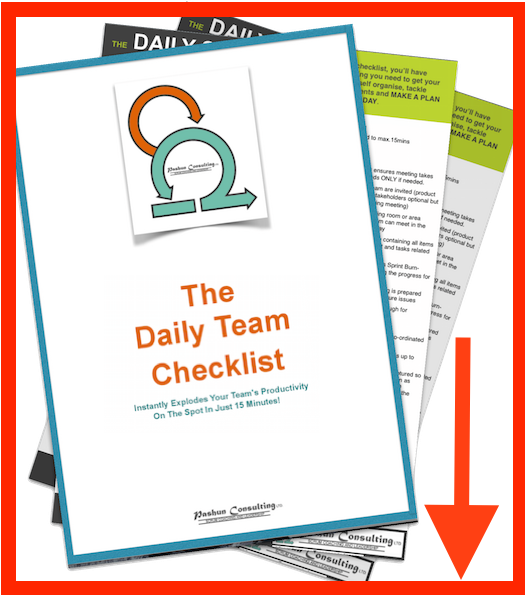Project Kick Off – Root Cause Analysis
So you have just started work for a new client or company and you need to use scrum to deliver a project. Since scrum is a framework, implementation of some of its practices tend to vary from company to company, therefore, whether the company is or is not using scrum already, it is often helpful to take note of how the company goes about its daily business before implementing the practices. Are the scrum rules being followed strictly? If not, is there a common sense reason why not? If there are no common sense reasons then the first thing to do to establish which practices may be flawed or need improvement. This is called a root cause analysis.
Communicating the Benefits of Scrum
Before a project kicks off, I recommend asking the question, ‘Have the benefits of scrum been communicated to all involved?’ At the beginning of a project we can sometimes wrongly assume that everybody understands what scrum is and that everybody is focused on delivering using its rules. However, there are often individuals within the organisation or within the team who for whatever reason, do not have the belief or understanding of scrum required to make it successful.
To avoid this situation or simply to make sure that this is not the case, it makes good sense for the scrum master to hold a kick off meeting. One of the purposes of the meeting would be to make sure that everyone involved (definitely the scrum team but stakeholders too if necessary) is clear on how scrum works and how it will benefit them from their perspective. For example, for a product owner, I recommend explaining the return on investment that will come about from prioritising the backlog.
For team members I recommend explaining how the framework will help them to work more productively and have fewer interruptions from third parties, for stakeholders (maybe in a separate meeting) I recommend clarifying the product owner’s role and explaining the benefit of the shippable increment of the product. I would also emphasise the way the sprint review allows stakeholders to feedback into the process and add value to their product.
(NOTE: Want to learn how to become a scrum master to facilitate teams and deliver projects on time? Check out the Become A Scrum Master In 7 Simple Steps Guide so you can learn the steps you REALLY need to make your team more productive! Get your Become a Scrum Master In 7 Simple Steps Guide now.)


